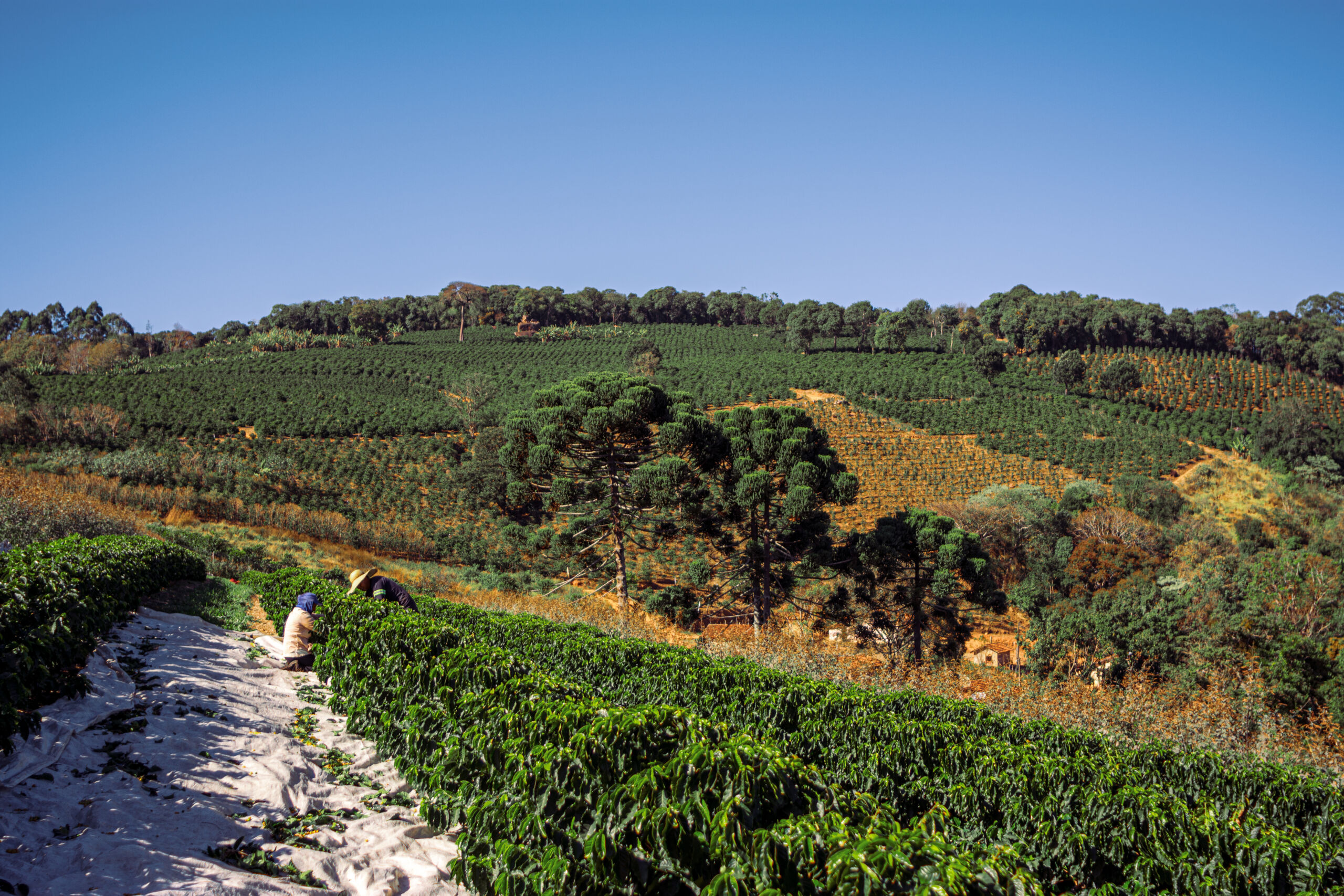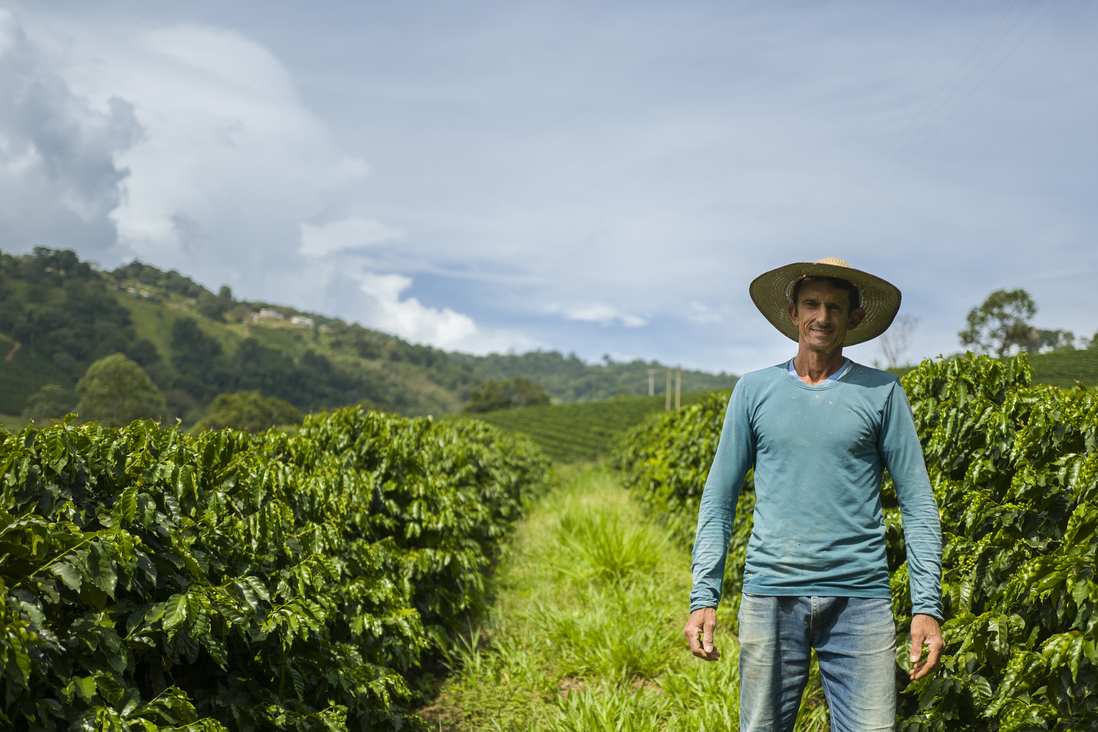
Brazil
NAME
Brazil Country Platform
GOVERNANCE
National Advisory Board
and Brazil Working Group
PLATFORM MEMBERS
38
ESTABLISHED
2012

NAME
Brazil Country Platform
GOVERNANCE
National Advisory Board
and Brazil Working Group
PLATFORM MEMBERS
38
ESTABLISHED
2012
Total Production (MT)
% Sustainable
Robusta vs. Arabica
% Exports
Number of Smallholder farmers
Number of Hectares
The Brazil Country Platform actively works with its members and partners to drive coffee sustainability. Through the development of tools, educational material, broad outreach and three GCP Collective Action Initiatives, the platform is committed to real change and positive results. Learn more about the history, evolution and achievements of Brazil’s Country and how the platform is striving to improve the lives of the country’s 265,000 coffee farmers.
The Brazil Country Platform has actively encouraged members to collaborate in special actions to improve coffee sustainability. Today, the platform focuses on providing technical assistance to members through its various activities and the development of tools. Learn more about the history, evolution and achievements of Brazil’s Country Platform by clicking through the timeline below.
The Brazil Country Platform has a well-established and active presence in the coffee sector, bringing together companies, producers, NGOs and other organizations to learn, collaborate and leverage coffee sustainability efforts. The multi-stakeholder and representative governance system is actively working.
Since launching in March 2015, the Brazil Country Platform has focused on 18 Fundamental Items out of the 122 included in the Brazilian Coffee Sustainability Curriculum (CSC). This prioritization has allowed the platform to accelerate the implementation of good sustainable agricultural practices in coffee producing areas of Brazil.
Launched in 2018, the CSC App is a tool for producers to by evaluating data across 122 CSC practices, the 18 CSC Fundamental Items and the 35 Brazil Sustainability Indicators defined by the Brazilian Working Group (BWG). The app generates 25 different reports to guide institutions on sustainability development.
The Internal Management System (IMS) was developed to assist Brazilian companies and cooperatives to manage and monitor internal activities with a focus on the implementation of the sustainable practices in coffee production to obtain a cycle of continuous improvement. The project included: technical trainings for technicians and growers, as well as the production of guides and manuals.
Collective Action Initiatives identify a specific need related to the most pressing issues in coffee production. Companies and organizations work together in a pre-competitive environment to drive positive change. There have been two Collective Actions in Brazil: Weed Management (2016-2018) and the Responsible Use of Agrochemicals (2018-2020).
This GCP Collective Action Initiative, launching mid-2020, in partnership with InPACTO and Cecafé, aims to to improve living and working conditions for coffee growers and workers, while promoting awareness about degrading working conditions and generating continuous improvement in the coffee sector. This initiative will contribute to eliminate unacceptable social practices at farm-level, with a strong focus on education, and mapping and monitoring working conditions. The data collected will include research covering living wages, living income and production costs.
Read the plan that aims to contribute 9.5% of the one million farmers that GCP aims to uplift through the GCP 2030 Goal.